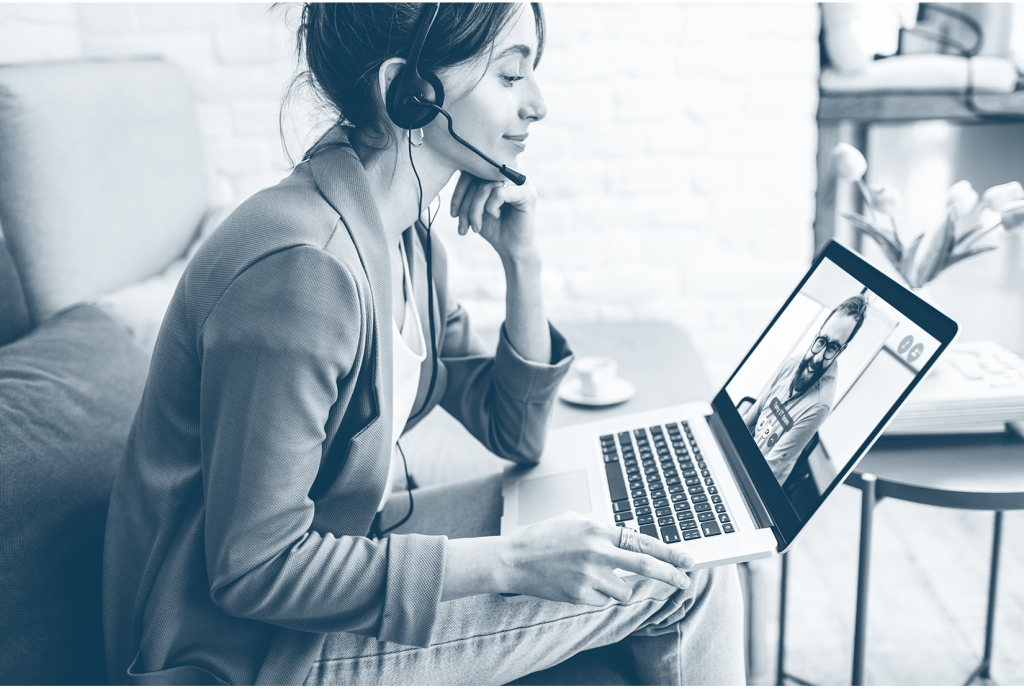2021 is here and a lot has changed over the past months, but some things remain the same: interviews.
We believe we know interviewing because we have been in the financial recruiting business for over 25 years! This year, we decided to offer our best advice to ensure your next interview goes well.
This guide to interviews covers:
- How to Approach Your Interviews
- Phone Interviews
- Video Interviews
- The New World of In-Person Interviews
How to Approach Your Interviews
Approach your interviews by doing in depth research on the company, the interviewer, and the role. Do not skip the prep work. Be thoughtful and thorough in your research.
While researching the company, learn about their history, mission, current team, performance, and competitors. By asking thoughtful questions, you can showcase your preparation for the interview.
We also suggest researching the interviewer so you can ask engaging questions about their experience. LinkedIn is a great place to start.
If you have contacts inside the company, it might be worth mentioning to the interviewer, if you are sure they will offer positive feedback about you and you’re sure they are respected internally.
Research the company and its position in their industry. Try to address the company’s market opportunities or offer insight about their industry, but only if the insights are significant. Don’t assume that you know the issues better than the interviewer does.
Prepare to answer oddball questions and to improvise if/when needed.
If you are diligent in your preparation, you can comfortably put our second crucial piece of advice to work…
Those of you who have worked with us know that we always emphasize, be yourself.
Be your best self but be yourself.
Do not try to be what you think the interviewer wants. You don’t really know what they want. You could lose the opportunity because they perceive you to be wrong for the role when you may be an ideal candidate.
Being authentic is our best recommendation.
Phone Interviews
As an interviewer, I pay attention to the body language, demeanor, and expressions of candidates that I interview. Eye contact is important.
The phone interview offers none of that so you must compensate for the lack of personal contact.
How do you do that?
When you speak, make sure that you convey energy and enthusiasm in your voice to compensate for the lack of body language and expression in a phone call.
Have some water with you to keep your voice fresh.
Make sure you “sell” yourself. A lack of enthusiasm in your voice may mean no in-person interview later.
Have a copy of your resume in front of you and as always, be prepared to talk about anything that is on the resume in detail.
It can be helpful to have a list with points that you would like to make before the end of the interview and questions to ask. That is one advantage of a telephone interview since you cannot have that in front of you during an in-person interview.
Video Interviews
We think that video interviews offer the best and worst combination of telephone and personal interviews! We suspect that even after the end of the pandemic, the video interview is here to stay, for at least a couple of rounds in a process.
Our first suggestion for video interviews is foundational but easy to overlook.
Find a place where you can speak without being interrupted and with minimal environmental noise. If necessary, use headphones.
Set your camera, phone, laptop, or tablet on a stand where you will not need to fuss with it. Make sure that it’s high enough to allow you to be “eye-to-eye” with your interviewer.
If the camera is too low, the interviewer will be looking at your chin or up your nose, neither of which is likely to be your best presentation. The light should be behind your camera, not behind you, to avoid shadows and other odd views of your face.
If you are interviewing in your bedroom, use an installed background to cover the unmade bed in the room.
We strongly suggest that you sign into your meeting a couple of minutes early to make sure that you don’t run into any technical problems.
Business dress may not be needed but check before the meeting to make sure. Even if business formal is not necessary, look neat and put together.
The New World of In Person Interviews
In-person interviews are the most traditional but with a new twist. 2021 brings a new set of questions about COVID precautions so we can all safely navigate the post-pandemic world.
Companies may ask about your personal Covid protocol and when you received your last negative test. You may be asked to test before coming in. Once vaccines are available to the public, it’s possible that could be a question as well.
Is the staff wearing masks when you come into the office? If not, do you keep yours on or remove it? That is a personal decision. If you get any pushback on your decision, ask yourself if this is the right place for you. What is the testing policy? How does the company handle/accommodate distancing /remote working? Do I need to have a vaccine to work in the office?
Each of these will depend on the company and you need to decide how comfortable you are with their protocols.
It’s also important to remember that an introduction no longer requires a handshake. In fact, a handshake may not be greeted positively.
COVID aside, there are still some important tips to keep in mind during an in-person interview.
First impressions linger, even more in person than over the phone or a video.
Be yourself and feel confident with your personal presentation. Dress appropriately, be on time or a bit early, and don’t overdo the small talk. Follow the interviewer’s lead.
Make sure you thank your interviewer, not only after you meet with them, but also with a follow up email. Some studies suggest that more than 80% of hiring managers take the thank you into consideration for the completion of the hire.
Furthermore, be genuine in your follow up. Include points you talked about or things you liked about the company or opportunity.
Conclusion
Our final tip, no matter what type of interview you have, is to expect the unexpected. Preparation is key but staying alert and being present in the moment will allow you to present your best self.
Interviews are a two-way conversation, you are exploring the company and team for fit as much as they are evaluating you.
As always, good luck!




